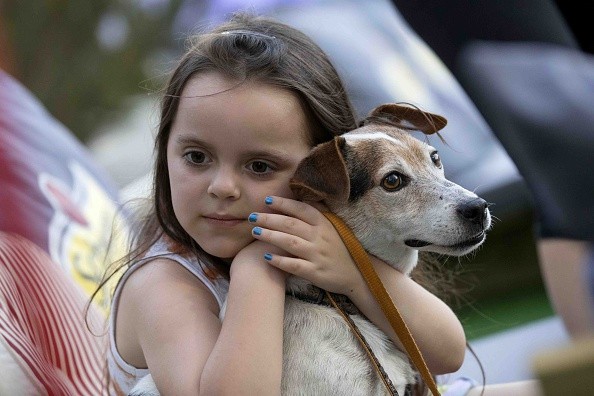A new study from the University of Alberta shows that people's grief over the loss of a loved pet should be more recognized and understood.

Grief Over the Death a Pet
Occupational therapy professor Cary Brown, one of the paper's authors, said that women 55 and older who lived alone expressed intense sorrow after losing a companion animal, but they were careful about who they shared their feelings with because they feared a dismissive response, according to a press release from the Faculty of Rehabilitation Medicine in Toronto.
As one of Canada's biggest and fastest-growing groups, older women living alone face "disenfranchised grief," which might increase their vulnerability to health problems, according to Brown.
Many of the ladies decided to remain at home and mourn alone, only alerting a few close friends or relatives about the loss. Rather than normalizing their sadness and being able to open up about it, they become more and more depressed and unable to function, according to Medical Xpress.
Age-related issues, such as reduced income after retirement, changes in housing, smaller social circles, and deteriorating health may be compounded by losing a pet.
How the Death of Animal Companinons Affect Its Owner
The death of a companion animal at that time in one's life may be a turning point for some individuals, according to the author of the study, Brown.
They no longer have a reason to go for a walk with their dog, which is good for their health and social interactions with other individuals they encounter. It's a big feeling of purpose when an animal relies on you; taking care of them provides a sense of meaning and purpose.
Health and well-being are protected by these measures, which help to remain in the homes as they age.
Companion animal sadness may be a health risk if it isn't understood, and this study tries to fill that gap by including nursing researchers.
The study validated the team's expectations that that form of mourning had a detrimental effect, said Brown, stressing that additional research would be undertaken to include male seniors to determine whether they grieve as intensely and suffer the same disenfranchised sadness as their female counterparts.
Even though they were sure they were doing the right thing by euthanizing their beloved dogs after 13 or more years of companionship, several of the research participants expressed tremendous regret. For weeks or months following the death, most of them scored it a 10 out of 10.
In addition, all of the participants thought that not everyone would understand their grief and were hesitant or ashamed to disclose their sentiments, Brown added.

Coping Mechanism For People Mourning Their Pet
Programs for health-care professionals, social workers and other grief services like online support groups are also needed to help people cope with the loss of a dog or cat, according to a research published in the Journal of Companion Animal Care and Research (JCACR).
For those who have lost a loved one, there are many options for help, but people also need to recognize the loss felt by those who have lost a pet, Brown added.
Public awareness and visible support for grieving individuals will prevent disenfranchised grief, as people begin to accept that grief is genuine and that those who have lost loved ones deserve our care and acknowledgment.
Related Article : Dog's Love Language: 5 Ways Your Dog is Saying 'I Love You'
For more news, updates about pets and similar topics don't forget to follow Nature World News!
© 2025 NatureWorldNews.com All rights reserved. Do not reproduce without permission.

